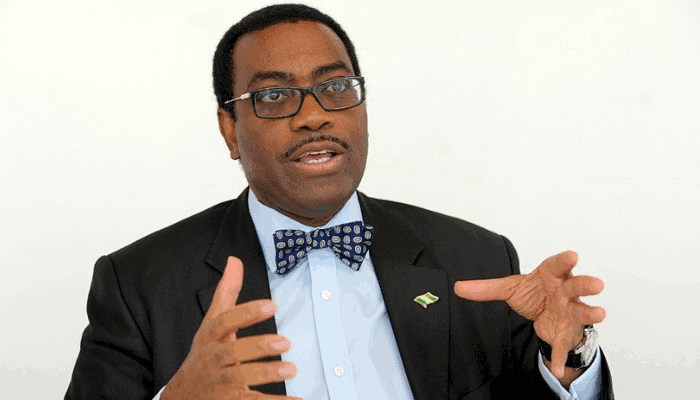President of the African Development Bank, AfDB, Dr Akinwumi Adesina, has stated that Nigerians are economically worse off today than they were at independence in 1960.
He made this statement on Thursday, May 1, during his keynote address at the 20th anniversary dinner of investment firm Chapel Hill Denham.
According to Dr Adesina, Nigeria’s gross domestic product, GDP, per capital has fallen from $1,847 in 1960 to $824 in 2024, reflecting a significant decline in citizens’ purchasing power.
“Our GDP per capita in 1960 was 1,847 dollars. Today, it stands at 824 dollars. Nigerians are worse off than 64 years ago,” Adesina declared.

He attributed this economic deterioration to prolonged policy failures, institutional weaknesses, and an overreliance on crude oil exports.
Adesina said, “Nigeria belongs in the league of developed nations. To get there, we must shift our mindset and pursue rapid economic growth.”
He also identified poor fiscal discipline, policy inconsistency, and lack of economic diversification as critical obstacles to national development.

Citing a comparative example, he highlighted that South Korea had a lower GDP per capital than Nigeria in 1960 but now records over $36,000.
“The divergence between Nigeria and South Korea shows what determined policies and strong institutions can achieve,” he noted.
He warned that without bold structural reforms, Nigeria would continue to trail behind its peers globally and within Africa.

Adesina emphasised the need for leaders to adopt a long-term vision and commit to ending the country’s dependence on oil revenues.
“Underdevelopment should not be accepted as our destiny. We must break free from this pattern,” he urged.
He proposed five key development priorities: expanding electricity access, improving infrastructure, accelerating industrialization, promoting innovation, and boosting agricultural competitiveness.

He added that projects such as the Dangote Refinery demonstrate the potential for Nigeria to become an industrial leader on the continent.
Adesina concluded by encouraging both the public and private sectors to collaborate in building a stronger, more inclusive economy for future generations.




